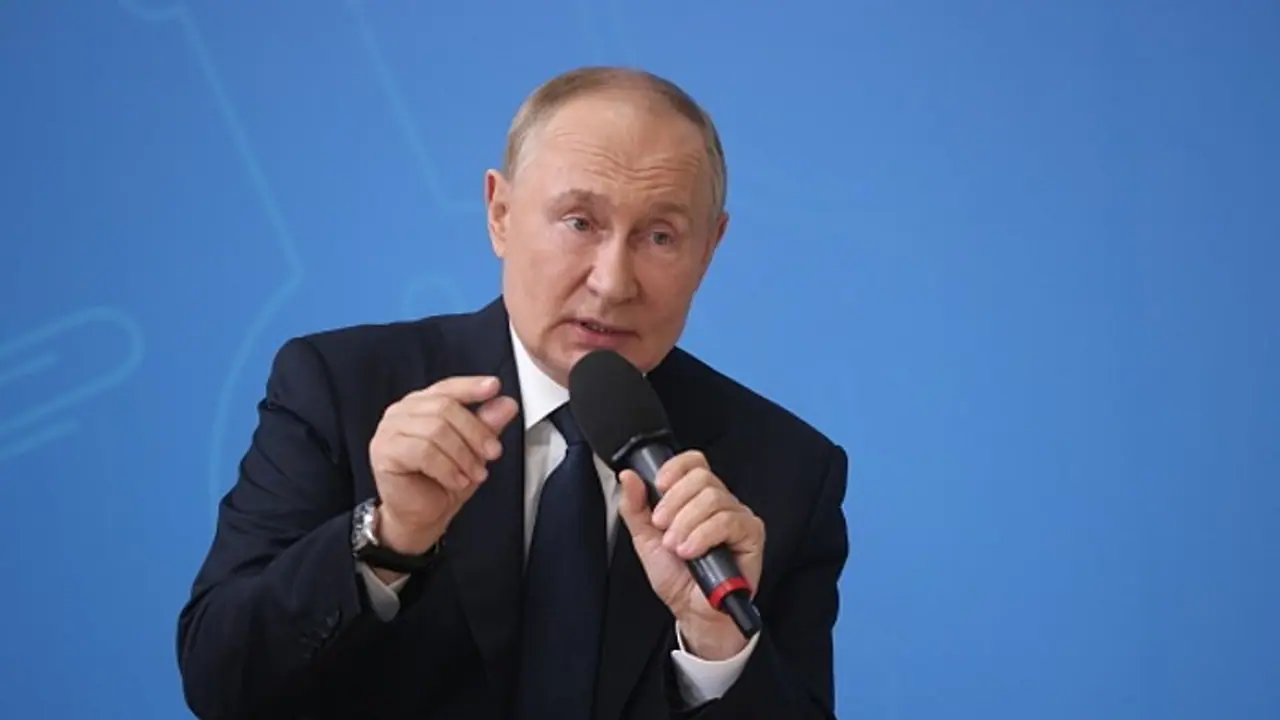Vladimir Putin on Tuesday approved significant updates to Russia’s nuclear doctrine, signaling that the country could consider using nuclear weapons in response to conventional missile attacks, particularly if such an assault is backed by a nuclear power.
Russian President Vladimir Putin on Tuesday approved significant updates to Russia’s nuclear doctrine, signaling that the country could consider using nuclear weapons in response to conventional missile attacks, particularly if such an assault is backed by a nuclear power. The move comes as tensions between Russia and the West continue to escalate, particularly with regard to the ongoing war in Ukraine.

The updated doctrine states that a nuclear strike by Moscow can be justified if it comes in response to “aggression against Russia and its allies by any non-nuclear state supported by a nuclear state,” or to a large-scale air attack with non-nuclear weapons, including drones.
The document also asserts that any aggression against Russia by a member of a coalition would be seen as an attack on Russia by the entire coalition, raising the stakes for Western nations involved in supporting Ukraine.
The updated stance is widely seen as a direct response to reported decisions by the Biden administration, which has allowed Ukraine to use American long-range missiles in its defense against Russian forces. The weapons in question are capable of striking deep within Russian territory, intensifying Moscow’s concerns about the growing role of NATO and Western powers in the conflict.
On September 25, Putin first suggested revising Russia's nuclear doctrine during a Security Council meeting. "The draft of the updated principles expands the category of states and military alliances subject to nuclear deterrence. This includes cases where the enemy, using conventional weapons, creates a critical threat to our sovereignty," he had said.
Kremlin spokesperson Dmitry Peskov said on Tuesday the change should be viewed as “a signal” to the West. “This is a signal to warn these countries of the consequences that would ensue if they take part in an attack on our country using any means, not necessarily just nuclear," he was quoted as saying.
When asked if the update was a reaction to US President Joe Biden's decision to permit Ukraine to use long-range ATACMS missiles to target deep within Russia, Peskov replied that the decree was "published at the right time." However, he stressed that Putin had given instructions for the doctrinal change "well in advance."
The decision to revise Russia’s nuclear policy highlights the gravity of the ongoing Ukraine war, which has become the most significant confrontation between Russia and the West since the Cuban Missile Crisis of 1962. At that time, the world stood on the brink of nuclear war, a scenario that now seems increasingly plausible amid the current geopolitical tensions.
